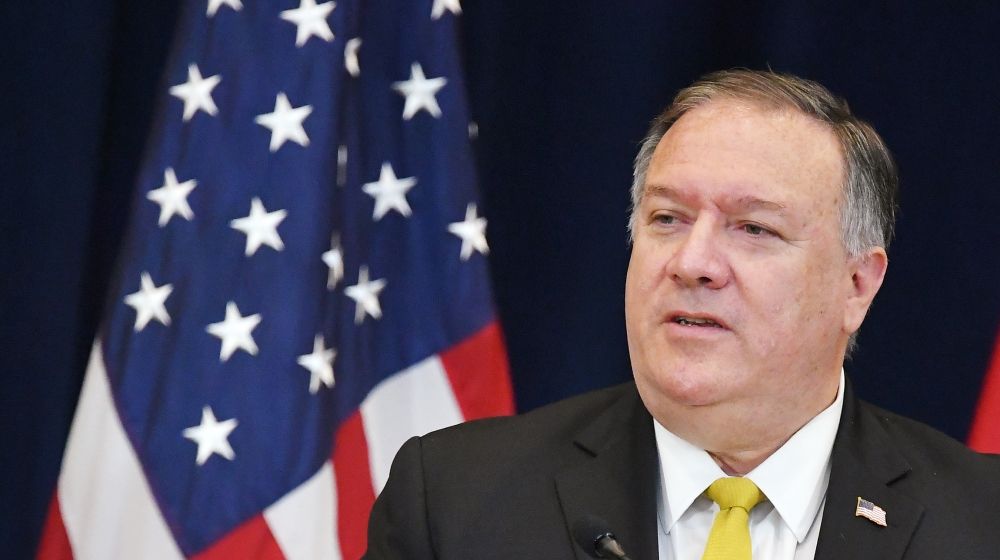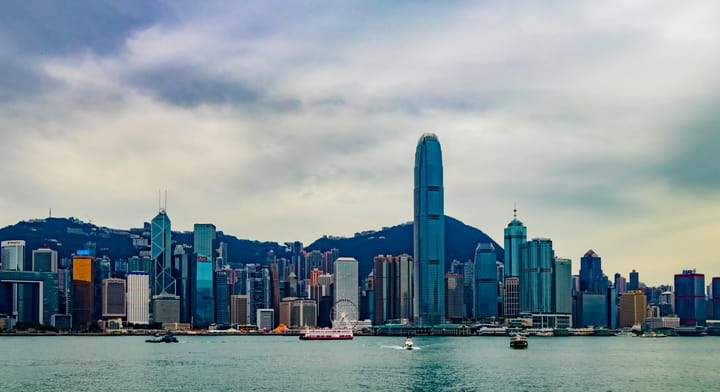US imposes sweeping new sanctions on Iran despite skepticism of the UN

A few minutes every morning is all you need.
Stay up to date on the world's Headlines and Human Stories. It's fun, it's factual, it's fluff-free.
The Trump administration has promised action against individuals and companies found assisting Iran in violating the sanctions
United States President Donald Trump on Monday, September 21, slapped sweeping new sanctions on Iran to curb Tehran’s nuclear, missile and conventional arms threats.
The announcement came after Washington asserted on Saturday that it had restored the United Nations arms embargo on Iran indefinitely.
“Today, I am taking new actions to restrict Iran’s nuclear, ballistic missile, and conventional weapons pursuits. My Administration will never allow Iran to have a nuclear weapon, nor will we allow Iran to endanger the rest of the world with a fresh supply of ballistic missiles and conventional arms,” Trump said in a statement.
US National Security Adviser Robert O’Brien said on Monday that the latest restrictions and export control measures covered 27 entities and individuals associated with Iran’s nuclear weapons program.
According to a White House executive order, the properties of individuals found involved in supplying, selling or transferring conventional arms and military equipment to and from Iran will be blocked, as well as the properties of those who provide technical training, financial support and services and other assistance related to these weapons.
The US State Department and Treasury Department also outlined plans on how foreign individuals and businesses will be penalized for violation of sanctions.
The new set of sanctions will affect several high-profile Iranian officials and government bodies.
Iran’s Defense Industries Organization (DIO), its director Mehrdad Akhlaghi-Ketabchi and Venezuelan President Nicolas Maduro are among those being sanctioned.
“For nearly two years, corrupt officials in Tehran have worked with the illegitimate regime in Venezuela to flout the UN arms embargo. Our actions today are a warning that should be heard worldwide. No matter who you are, if you violate the UN arms embargo on Iran, you risk sanctions," said Secretary of State Mike Pompeo during a Monday press briefing at the State Department.
US Treasury Secretary Steven Mnuchin said, “Any financial institutions that knowingly facilitate a significant transaction for these individuals or entities could be subject to US sanctions.”
Shortly before the US announced its plans to restore sanctions against Tehran, the Iranian Foreign Minister Mohammad Javad Zarif said on Iranian state television, “The Americans, as a rule, act as a bully and impose sanctions. The world community should decide how to act towards bullying.”
Global response to the reimposition of UN sanctions on Iran
Following Trump’s executive order to reimpose UN sanctions on Iran, Washington demanded that the UN member states follow suit or face “consequences for those failures.”
However, UN Secretary-General Antonio Guterres stated that no action would be taken until a clarification came from the UN Security Council on whether sanctions that had been lifted should be restored.
The US has been unable to garner international support, with China and Russia unequivocally rejecting the reimposition of sanctions on Iran, while Britain, France and Germany – known collectively as the EU three or “E3” due to their status as the three largest founding members of the European Union – claiming that the US announcement does not have legal ramifications.
White House officials confirmed that action would be taken against individuals and companies, including European banks that assist Iran in violating the UN sanctions.
“If a European bank were to finance an arms sale to Iran or by Iran, absolutely, it would be sanctioned," US special envoy for Iran and Venezuela Elliott Abrams said on Monday.
“I won’t get into detail about the timelines, but that’s clearly the direction in which Iran wishes to move,” Abrams added, referring to a Reuters report from September 20 that alleged Iran could have enough fissile material for a nuclear weapon by the end of 2020.
Abrams also stated that the US was concerned about Tehran’s long-range missile cooperation with North Korea and that Washington would do everything in its power to prevent it.
The international nuclear deal with Iran was reached in July 2015 under the Obama administration and involved the five permanent members of the United Nations Security Council (UNSC), Germany and the European Union (EU).
Under the Joint Comprehensive Plan of Action (JCPOA), the five UNSC members and Germany agreed to lift some sanctions on Iran, including reopening Iran’s markets to foreign investors, but restrictions on ballistic missile activities were retained and Tehran’s nuclear activities were limited, to prevent it from making a nuclear bomb.
In May 2018, Trump unilaterally pulled the US out of an international nuclear deal with Iran, calling it “decaying and rotten” and reimposed the lifted sanctions on Iran. However, Iran continued some of its nuclear activities. In July 2019, it violated the terms of the deal by exceeding limits on both uranium enrichment and stockpile levels, although Tehran denied that its nuclear programs were for military purposes.
The UNSC on August 14 rejected a US resolution aimed at indefinitely extending an arms embargo on Iran. With the extension blocked, Washington reimposed sanctions on Tehran according to the snapback process under UN Security Council resolution (UNSCR) 2231. The 13-year embargo on Iran is due to expire on October 18.
Have a tip or story? Get in touch with our reporters at tips@themilsource.com




Comments ()